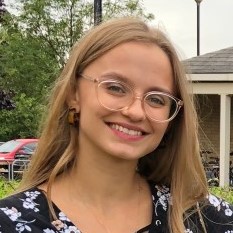About me
I completed my undergraduate Biomedical Science degree from the University of Sheffield in 2020. During my studies, I developed a strong interest in stem cell biology and was particularly enticed by the unique ability of pluripotent stem cell (PSC) differentiation, and the vast potential for application of these cells, both in modelling diseases and cell therapy. I undertook my undergraduate research project in Dr Ivana Barbaric’s lab studying cell behaviours of human embryonic stem cells (a type of PSC) and it was during this project that I decided to pursue a research career in stem cell biology.
Prior to this, I completed an industrial placement year with AstraZeneca, where I worked on a drug toxicity-related project, and developed an appreciation for the importance of stringent testing to ensure patients are provided with safe therapies. This experience narrowed my broad interests of stem cell biology towards PSCs cell therapy safety.
When I came across this collaborative PhD project post to study genetic changes of PSCs, between Barbaric lab, part of the Centre of Stem Cell Biology and AstraZeneca, a leading cell therapy pharmaceutical company, it was simply a no brainer! This project is a perfect opportunity for me to combine my interests, whilst learning to approach research questions from both an academic and industrial perspective. And not to mention, I have adored living in Sheffield for my undergraduate degree, therefore the location of my PhD based at the University of Sheffield is a bonus!
My research
Aneuploidy, an imbalanced complement of chromosomes, is generally associated with reduced cellular fitness and developmental disorders, however, paradoxically, is also a common cancer trait. Importantly, patterns of aneuploidy are cell-type-specific, such that same tissue-derived tumours repeatedly acquire the same chromosomal abnormalities, e.g. gain of chromosome 1q in breast cancers, and chromosome 17q gain in neuroblastoma. Similarly, human pluripotent stem cells (hPSCs), which can give rise to all adult cell types, acquire non-random chromosomal changes in vitro, namely whole or partial gains of chromosomes 1, 12, 17, 20 and X. hPSCs with these abnormalities have a selective advantage over diploid counterparts in culture. As such, it is hypothesised that aneuploidy impacts cells in a non-universal, but rather a chromosome- and cell-type-specific manner.
Nevertheless, this hypothesis is difficult to study, due to the lack of appropriate aneuploidy models and technical difficulties of inducing aneuploidy in primary cell lines. In this project, I aim to investigate the impact of chromosome-specific aneuploidies on different cell types using hPSCs as a model. By differentiating diploid and experimentally or sporadically derived aneuploid hPSC lines, different cell types can be derived from the same genetic background and directly compared, providing a unique way of studying cell-type-specific aneuploidy.
This project will enhance the current understanding of how different aneuploidies affect cell fate decisions and function, and the role different aneuploid cells play during development and in cancer. Importantly, it will inform of the potential safety and efficacy implications of aneuploid hPSCs arising in cell therapy, which is currently unknown.
Contact
LinkedIn: https://www.linkedin.com/in/gabriele-gelezauskaite

